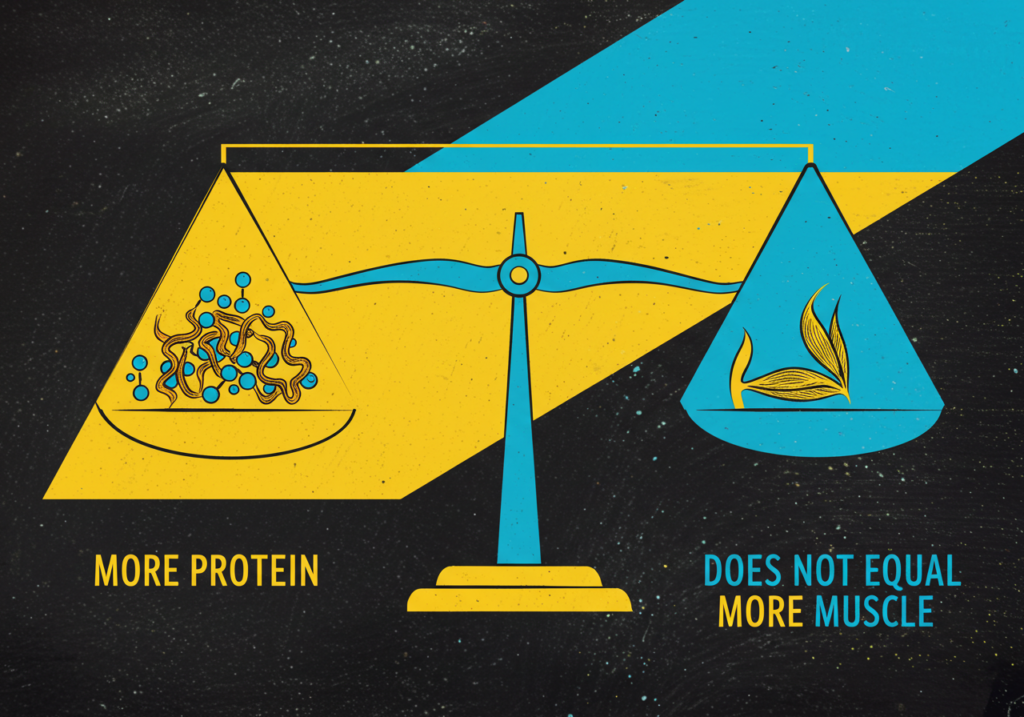In the ever-evolving world of fitness, the availability and marketing of supplements have grown exponentially. While these products are often touted as essential for achieving fitness goals, numerous myths regarding their efficacy and usage have emerged, leading to confusion among gym-goers. Many individuals seeking to enhance their performance, build muscle, or lose weight fall prey to these misconceptions, which can lead to disappointment and potentially harmful choices.
Misinformation about nutritional supplements is common in the fitness community. Misleading claims, often propagated by social media influencers or poorly researched articles, can bend the understanding of what supplementation truly entails. For instance, the belief that all supplements can provide miracle results without the need for proper diet and exercise reflects a deep-rooted fitness myth. This shared misinformation often results in making decisions based on anecdotal evidence rather than actual research.
Understanding the science behind supplements is crucial for anyone involved in a fitness journey. It is important to distinguish between evidence-based recommendations and exaggerated marketing claims. Many individuals invest both time and money into supplements, only to realize later that those choices were ineffective or unnecessary.
As we delve deeper, we will debunk some of the most prevalent myths surrounding fitness supplements, providing clarity and helping individuals navigate their supplement choices responsibly.
Myth 1: More Protein Equals More Muscle

A general belief in fitness circles is that consuming excessive amounts of protein will directly enhance muscle growth. This misconception has led individuals to binge on protein supplements or high-protein foods, assuming that this will yield accelerated muscle gains. However, evidence suggests that the body’s protein requirement is much more nuanced.
While protein plays a crucial role in muscle repair and growth, there is a limit to how much protein the body can efficiently use. Research indicates that the optimal protein intake for most individuals engaged in regular strength training is around 1.6 to 2.2 grams of protein per kilogram of body weight, depending on factors such as activity level and overall fitness goals. Consuming protein beyond this threshold does not necessarily yield additional muscle mass and may even result in unnecessary strain on the kidneys.
Moreover, muscle building is a complex physiological process that involves not only protein intake but also a balanced diet rich in carbohydrates and fats. Carbohydrates, for instance, provide the necessary energy required for intense workouts, while dietary fats support hormonal balance, including hormones vital for muscle growth such as testosterone. Neglecting these nutrients in favor of excessive protein can hinder overall fitness progress.
A study published in the “American Journal of Clinical Nutrition” highlights the importance of a balanced approach to nutrition, emphasizing that a combination of protein, carbohydrates, and fats equally contributes to muscle synthesis. Therefore, try to view protein as just one aspect of a comprehensive dietary strategy rather than the sole determinant of muscle mass.
Myth 2: Creatine Is Bad for Your Kidneys

One of the most common supplements myth is the belief that creatine is harmful to kidney health. Many individuals, especially those who are new to fitness products, worry that taking creatine could lead to long-term renal issues. However, research conducted in recent years has provided significant evidence that creatine, when used by healthy individuals, does not pose such risks.
Numerous studies have examined the effects of creatine supplementation on kidney function. A comprehensive review published in the Journal of Sports Medicine found no harmful effects on renal parameters among healthy athletes who ingested creatine, as evidenced by stable creatinine levels and glomerular filtration rates. These findings challenge the long-standing misconception that creatine adversely affects kidney health.
It is essential to consider the context under which creatine may pose potential risks. Individuals with pre-existing kidney conditions should indeed exercise caution when considering supplements, including creatine. Health professionals have advised for baseline kidney assessments before starting any supplementation regimen, particularly for those with known health issues. In such cases, it is beneficial to consult a healthcare provider who can offer personalized advice based on medical history and health status.
Expert opinions further support the safety of creatine for the general population. Renowned nutritionists and fitness experts argue that an appropriate dosage of creatine—typically 3 to 5 grams per day—is unlikely to cause harm to healthy individuals. Ultimately, individuals should still make informed decisions regarding their fitness products and approach supplementation positively and responsibly.
You can read our in-depth guide on creatine by clicking here.
Myth 3: Supplements Can Replace a Healthy Diet

Another widespread myth is the belief that supplements can effectively substitute for a well-balanced diet. While supplements can play a supportive role in one’s health regimen, they should never be considered a replacement for nutrient-dense whole foods. Whole foods, such as fruits, vegetables, whole grains, proteins, and healthy fats, provide a complex array of nutrients, including vitamins, minerals, fiber, and antioxidants, all of which work synergistically to promote optimal health.
Nutritionists and dietitians emphasize that no supplement can mimic the full benefits offered by whole foods. The bioavailability of nutrients—how well the body absorbs and utilizes them—is often much higher in food sources than in pill or powder form. For example, while vitamin C can be consumed through supplements, studies show that citrus fruits and leafy greens are far more effective at providing this essential nutrient alongside other beneficial compounds, such as flavonoids and fiber.
Furthermore, relying solely on supplements can lead to nutrient imbalances and deficiencies. Whole foods also support digestive health by providing dietary fiber, which is often absent in supplement formulations. It is through a diverse diet that individuals can achieve the broader spectrum of nutrients essential for physical fitness, mental clarity, and overall well-being.
Ultimately, supplements should be viewed as adjuncts to a healthy diet rather than replacements. They can help fill gaps for those with specific dietary restrictions or increased nutritional needs, such as weight-lifters or individuals with certain health conditions. It is crucial to maintain a balanced approach to nutrition that prioritizes whole foods while strategically using supplements for optimal health.
Myth 4: Fat Burners Guarantee Weight Loss
The notion that fat burners can promise effortless weight loss has gained significant traction among the general public. This common misunderstanding suggests that merely consuming these supplements will dramatically reduce body weight without requiring any changes in diet or exercise. However, the reality surrounding fat burners is considerably different and warrants careful examination.
Fat burners generally function by enhancing metabolism, suppressing appetite, or increasing energy expenditure. Some of the ingredients commonly found in these products include caffeine, green tea extract, and various botanical extracts. While these components may offer marginal benefits when used in conjunction with a balanced diet and regular exercise, relying solely on supplements for weight loss is misguided.
Research has consistently demonstrated that the effectiveness of fat burners is significantly limited when lifestyle changes are not implemented. A study published in the International Journal of Obesity indicated that individuals using fat-burner supplements lost only a small percentage of body weight compared to their counterparts who engaged in regular physical activity and adhered to a proper diet.
Furthermore, fat burners may create unrealistic expectations. Many users anticipate rapid transformations, yet sustainable weight loss is a gradual process that requires perseverance and commitment. Integrating proper nutrition and exercising regularly is crucial for enhancing the efficacy of any fat-burning supplements. It is essential to acknowledge that these products are not a substitute for fundamental lifestyle changes but rather a potential complement to them.
Hence, fat burners support a well-rounded fitness regimen, yet true weight management requires a focus on healthy eating and consistent physical activity.
Myth 5: Supplements Are All Natural and Safe
Many individuals believe that dietary supplements are inherently safe due to their natural origins. This misconception overlooks the critical fact that the supplement industry is not as tightly regulated as pharmaceuticals. Unlike medications that undergo rigorous testing for safety and efficacy, many supplements can enter the market with minimal oversight. This lack of regulation can lead to the distribution of products that may not contain what they claim, or worse, contain harmful substances hidden within the ingredients.
Furthermore, the term “natural” does not guarantee that a supplement is free from risk. Many naturally derived substances can still have adverse effects, especially when taken in excessive amounts or combined with other supplements or medications. For instance, herbal supplements may interact negatively with prescription drugs, leading to serious health issues. Given these factors, it is essential to conduct thorough research before incorporating any supplement into your routine.
When selecting supplements, it is crucial to prioritize products that emphasize transparency and quality. Look for brands that provide detailed labeling of ingredients and sourcing practices, as well as third-party testing certifications. Regulatory agencies, such as the Food and Drug Administration (FDA), provide guidelines and warnings regarding certain supplements. Moreover, consulting with healthcare professionals can help mitigate risks, ensuring that any supplement taken aligns with individual health needs and goals.
We hope that this guide provided you with a brief understanding of widespread myths regarding supplements in the fitness world. In the end, it’s always important to have in-depth research on any supplements before adopting it in your daily life.
Stay Healthy!


